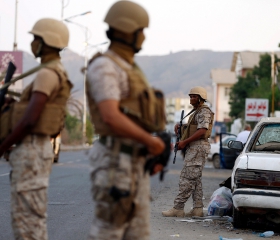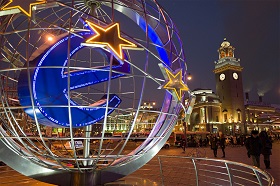On the 12th of February 2016 the 52nd Munich Security Conference officially opens its sessions. Russian delegation is headed by Prime Minister Dmitry Medvedev. On the eve of the Conference RIAC President Igor Ivanov gives an outline of his views on the issue of national security in the modern world. Is Neutralist Policy Already Outdated?
On the 12th of February 2016 the 52nd Munich Security Conference officially opens its sessions. Russian delegation is headed by Prime Minister Dmitry Medvedev. On the eve of the Conference RIAC President Igor Ivanov gives an outline of his views on the issue of national security in the modern world. Is Neutralist Policy Already Outdated?
Guaranteeing security has always been one of the most important functions of the state. Throughout the course of history, fortress walls were built, castles erected, armies created, borders strengthened, taxes increased and military alliances forged, all in the name of protecting the people. Nothing – not even flourishing trade and professions, the wealth of the nobility and the people or the highest achievements in culture and art – could make up for weaknesses in national security.
Today, guaranteeing security remains the major priority of public officials and politicians. Global military spending is measured in astronomical figures. National security is always at the centre of heated political debate. And states feverishly strengthen their bilateral and multilateral military and political alliances, primarily within NATO. It would seem that the security issue, for NATO at least, should be solved by now – or at least close to being solved once and for all.
Having said that, is there even one country in the world that can say it feels completely safe? Did the United States’ colossal military budget prevent the tragic events of September 11, 2001? Did NATO membership help save Spain, the United Kingdom and France from terrorist attacks? Can NATO mechanisms be used effectively to counter the migration crisis that has plagued much of Europe in recent months?
The answer to all these questions is an unequivocal “no”. And this most likely has little to do with the stagnation and inertia of the traditional military and political mechanisms that were created in the middle of the last century. Nor is it attributable to a lack of imagination and energy among NATO leaders. What is more important in our opinion is the fact that the threats faced by all countries in the 21st century – big and small, rich and poor, Eastern and Western – have changed at the most fundamental of levels.
First, the main threats do not come from neighbouring states or hostile military alliances, but rather from non-state actors such as Al-Qaeda, ISIS, etc. These network structures cross national borders with ease and take root in the most diverse regions of the world. Military blocs are about as useful against them as swords and shields are for fighting the Ebola virus.
Second, in today’s global world, security, by definition, also takes on a global significance. Building a kind of separate “region of total security” is a hopeless endeavour. Poor security among close (and even distant) neighbours will render all such efforts pointless sooner or later, regardless of the amount of resources pumped into them.
Third, the modern world is developing at an extraordinarily rapid pace. Threats appear and change before our very eyes, adapting to new conditions and reacting quickly to new opportunities. These threats simply cannot be countered with the old, cumbersome and rigid military-political alliances, no matter how hard you try. Instead of the lifeless and rusty structures of these military blocs, humankind needs a kind of Lego set, so the necessary combination of “bricks” for dealing with specific issues can be quickly put together.
Are there any examples of alternative methods being used successfully to solve problems of national security? Of course there are. Just look at the experience of Finland and Sweden after World War II. These two northern European countries decided upon a policy of neutrality – both will follow their own paths depending on geopolitical circumstances and taking their own complex, and at times dramatic, history into account. At the same time, both Sweden and Finland remained European and western countries without sacrificing their neutrality, their national identity or their fundamental values.
Is it fair to say that Sweden and Finland had greater security deficits during the Cold War than their neighbours in NATO? Of course not. Is it fair to say that Sweden and Finland were pushed into the margins of European and world politics because of their neutral status? Once again, no. On the contrary, each of these countries has earned a unique place in European affairs: just recall Finland’s impressive role in the preparations for and signing of the Final Act of the Conference on Security and Cooperation in Europe in Helsinki in 1975. Incidentally, the principle of neutrality does not prevent Sweden from taking part in NATO operations, such as Afghanistan.
For decades, Finnish and Swedish statesmen have stood out among their European colleagues for the breadth of their views, their forward thinking and their ability to combine political flexibility with the highest moral and ethical standards. Just look at the very different, but equally brilliant leaders Urho Kaleva Kekkonen and Olof Palme. Perhaps it was this neutrality that allowed such leaders to be elected in the first place – leaders who were free from rigid bloc-style politics and who enjoyed the kind of inner freedom that is needed to implement bold political ideas.
Understand me correctly – by no means am I calling for the immediate dissolution of NATO. It is unlikely given the current conditions, and for a number of reasons. But should we pin out hopes on NATO as a solution to all security issues that may ever arise? Are we to believe that by joining NATO these problems can be delegated to the bureaucrats in Brussels? Harbouring such hopes in current conditions would, in my opinion, be tantamount to political frivolity bordering on irresponsibility.
Sooner or later, we will have to start building a new, all-encompassing international security system that is equal for all. And the role in this process of states that are committed to a policy of neutrality and which have experience of existing outside military and political alliances, will be indispensable.







